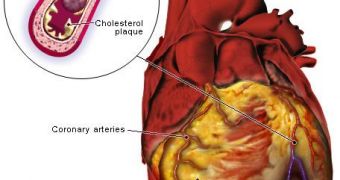A new study published on bmj.com links the cooling of the average temperature outside to a rise of heart attack risks in England and Wales, especially for more vulnerable people.
Because of the current global climate change, the relationship between human health and ever changing weather is of most interest.
Until now, several studies have established a connection between outdoor temperatures and mortality risk in the short term, for both too cold and too hot days, but none has defined the precise effect of temperature on the risk of heart attacks.
British scientists from the London School of Hygiene and Tropical Medicine analyzed the short term link between outside temperature and risk of myocardial infarction and found out that each 1°C drop in temperature on a single day caused about 200 extra heart attacks.
For this study they considered data from 84,010 hospital admissions for heart attack between 2003 and 2006, in the Myocardial Ischaemia National Audit Project (MINAP) and looked at daily temperatures from the British Atmospheric Data Center, in 15 geographical areas in England and Wales.
After adjusting the results for influenza activity, air pollution, seasonality and long term trends, the researchers found out that a 1°C decrease in daily temperature determined an overall 2% increase in myocardial infarction for 28 days, with the risk peak being within the two weeks of exposure.
The percentages might seem insignificant but one look at the actual figures is enough to take conscience of the 146,000 heart attacks every year of which 11,600 cases in a 29 days period, bringing the extra infarction numbers to a total of 200 for each degree of temperature drop nationwide on a single day.
The most vulnerable to the fastidiousness of the British weather are older people between 75 and 84 years old as well as those with former coronary heart disease, while those that had been taking aspirin in the long run were more resistant.
The conclusion of this study is that low ambient temperature is associated with short term increase in heart attack risk, especially within the two weeks after exposure.
Scientists did not establish a connection between heart attacks and hot weather, as this is rather rare in the UK, but they will continue this research with future studies on the role of home heating and clothing and try to discover which groups are more vulnerable.

 14 DAY TRIAL //
14 DAY TRIAL //